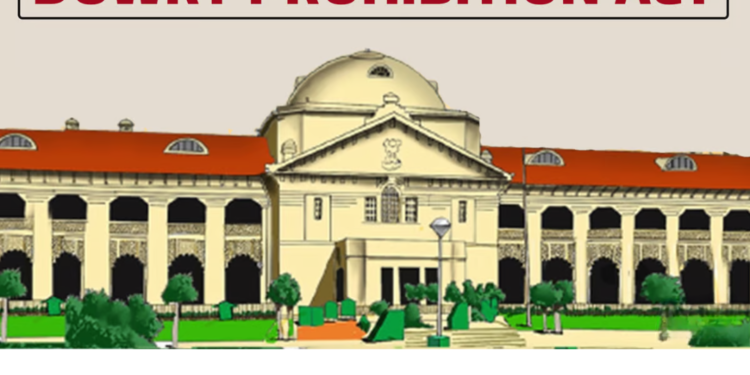The Allahabad High Court has recently directed the Uttar Pradesh government to assess the necessity of granting police powers to dowry prohibition officers, as highlighted in the case of Ankit Singh and 3 Others v. State of UP and Another.
Justice Vikram D. Chauhan questioned why the police were conducting investigations into dowry allegations, bypassing the jurisdiction of dowry prohibition officers. He noted that police often submit chargesheets mechanically, based solely on the statements of the bride or her family.
Justice Chauhan remarked, “If the decision to prosecute under the Dowry Prohibition Act is to be made by the Dowry Prohibition Officer, then how can the police bypass this special procedure and jurisdiction, submitting chargesheets against the groom and his family?”
The Court emphasized that the power to prosecute and gather evidence in dowry cases lies with dowry prohibition officers. The State can issue notifications to grant these officers the powers of police officers.
Dowry prohibition officers are also authorized to issue preventive measures to maintain harmonious relationships between spouses and their families. The Court observed that, to sidestep the jurisdiction of these officers, allegations under the Indian Penal Code are often added to charges under the Dowry Prohibition Act. This practice was criticized by Justice Chauhan, who asserted that the jurisdiction of dowry prohibition officers should not be undermined in this way.
In a recent hearing on May 23, the Court was informed that the State now requires couples to submit a list of wedding presents at the time of marriage registration. The Court welcomed this as a significant step towards eradicating the dowry menace.
“The government order dated 17.5.2024 will also help prevent false accusations against the groom and his family after a matrimonial dispute arises,” the Court stated.
Additionally, the State has directed various departments to ensure employees declare that no dowry was taken at the time of their marriage. Despite these steps, the Court expressed concern over the slow progress in implementing the Dowry Prohibition Act and related rules.
Justice Chauhan remarked, “It is surprising that despite the Dowry Prohibition Act, 1961 being enacted over 62 years ago, the eradication of dowry practices has been slow. The government needs to address this illegal practice more effectively.”
The Court directed the Chief Dowry Prohibition Officer to report on awareness campaigns against dowry conducted in the past two years. It suggested that a mass appeal program, similar to the successful polio campaign, could significantly aid the anti-dowry movement. The involvement of civil society was also deemed crucial for this campaign.
The case will be heard again on July 16, with Advocate DK Ojha and Vikas Kumar Ojha representing the petitioners.

















